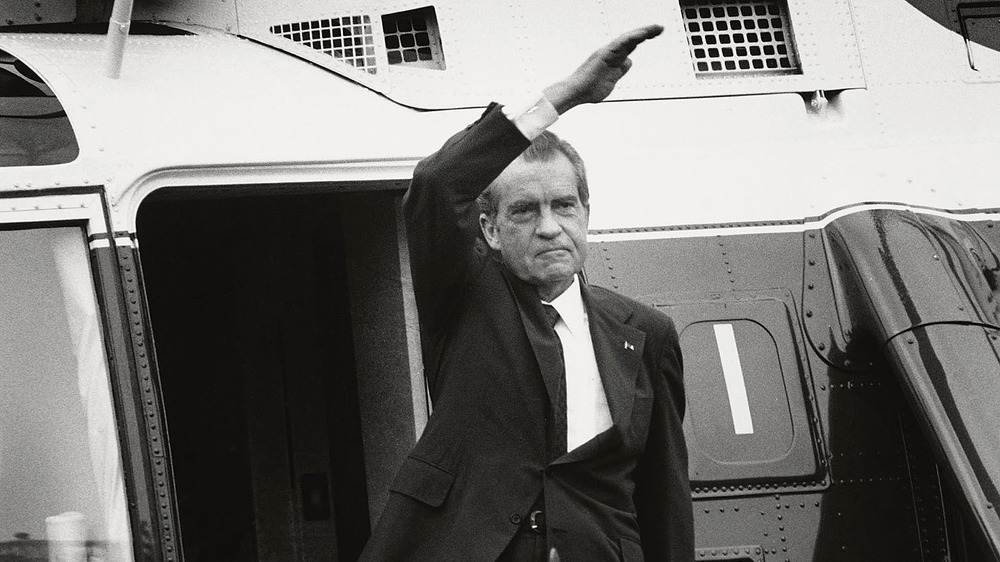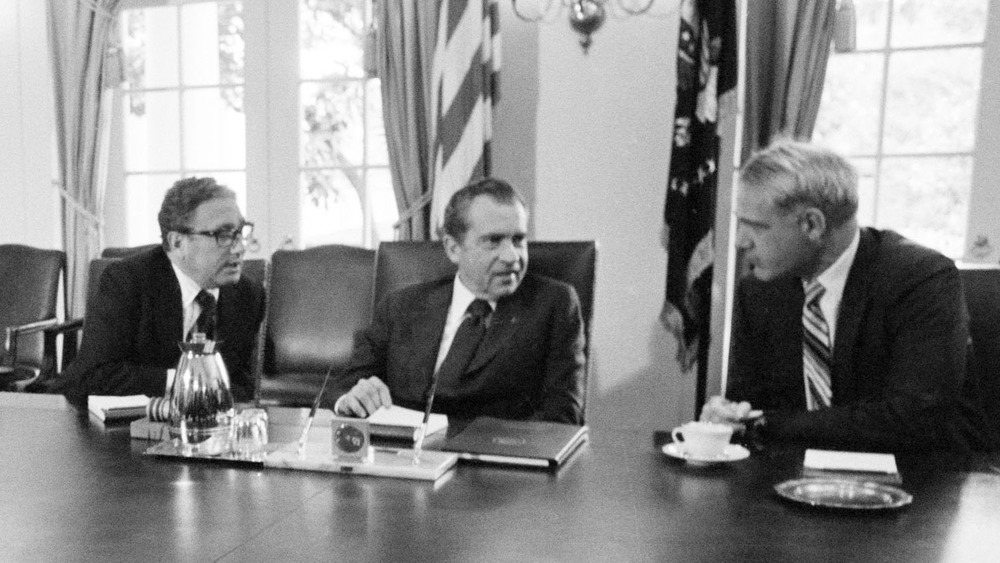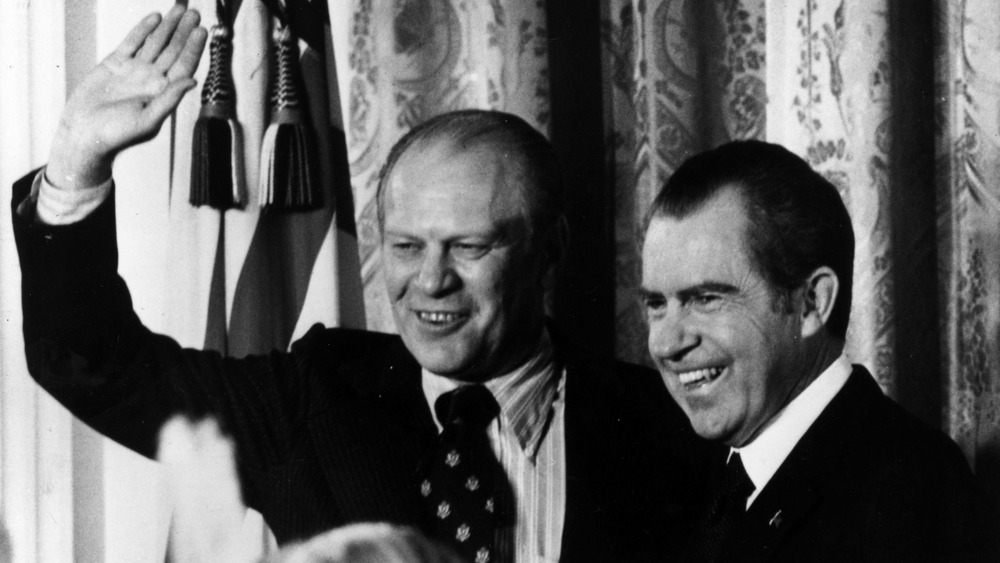A Look At Richard Nixon's Final Days To Avoid Impeachment
By the photographs that captured the moment, you could easily think that the departure of Richard M. Nixon was a joyous one. Nixon, smiling ear-to-ear, walked across the White House South Lawn on a red carpet with his wife, Pat. He climbed the stairs of the Army One helicopter, turned around to wave goodbye and raised his arms in his hallmark double-victory sign.
But that morning — August 9, 1974 — was not celebratory. It was the culmination of months of unraveling and a strategy to avoid impeachment over matters related to the Watergate scandal. Moments earlier, Nixon resigned from office with a single-sentence letter to Secretary of State Henry Kissinger, now posted at the National Archives, that read, "I hereby resign the Office of President of the United States."
President Nixon addressed the country on national television the night before to inform Americans of the decision he had made. "Good evening. This is the 37th time I have spoken to you from this office, where so many decisions have been made that shaped the history of this nation," he said, according to PBS. Nixon offered his own words to shape history by becoming the first president to step down from office: "I shall resign the presidency effective at noon tomorrow."
More than a year of constant revelations associated with the Watergate scandal forced Nixon to come to the realization that resigning was his only option, because even his most ardent supporters had all but disappeared.
Nixon avoided impeachment by resigning
"By taking this action," Nixon said in a dispirited tone, "I hope that I will have hastened the start of the process of healing which is so desperately needed in America," The Washington Post reported at the time.
For Nixon, the writing was on the wall weeks earlier that his administration would not survive, when three Democrats on the House Judiciary Committee announced that they would vote for his impeachment. When Nixon informed his family on August 2 of his decision to resign, they implored him to reconsider. Three days later, however, a transcript of a June 23, 1972 conversation between Nixon and his chief of staff, H.R. Haldeman, was released. As the Miller Center at the University of Virginia relates, that transcript, which became the "smoking gun" investigators were desperate to discover, proved that Nixon had lied when he insisted that he had no involvement in the Watergate cover-up.
On August 7, Republican Senator Barry Goldwater of Arizona and a congressional delegation confirmed to Nixon that he would not survive an impeachment vote. "This was the final blow, the final nail in the coffin," Nixon later recalled in an interview with his former aide, Frank Gannon, according to History.com. "Although you don't need another nail if you're already in the coffin — which we were."
Over the course of August 8, Nixon was emotional as he informed his supporters about his decision. Then, at 9 p.m., Nixon sat behind the desk in the Oval Office and began his famous, three-minute final address.
Nixon was in good spirits because a deal had been struck
White House chief of staff Alexander Haig entered the Oval Office early the next morning and handed Nixon a single piece of letterhead. It was his letter of resignation to Secretary of State Kissinger, as required by the 1792 presidential succession act. Nixon picked up his pen and signed it. Kissinger later initialed the document with the receipt time of 11:35 a.m., making Vice President Gerald Ford the new president.
On his way out, Nixon gathered his cabinet and White House staffers in the East Room, offering a speech with a positive message. "We leave with high hopes, in good spirits, and with deep humility, and with very much gratefulness in our hearts," he said, according to The New York Times. He also offered a bit of advice: "Always give your best, never get discouraged, never be petty; always remember, others may hate you, but those who hate you don't win unless you hate them, and then you destroy yourself."
On September 8, 1974, exactly one month after Nixon announced his resignation, President Ford pardoned Nixon, noting that the "tranquility" that had been returned to the country could be lost by bringing the former president to trial. "The prospects of such trial will cause prolonged and divisive debate over the propriety of exposing to further punishment and degradation a man who has already paid the unprecedented penalty of relinquishing the highest elective office of the United States," he said, according to Ford's archives.


